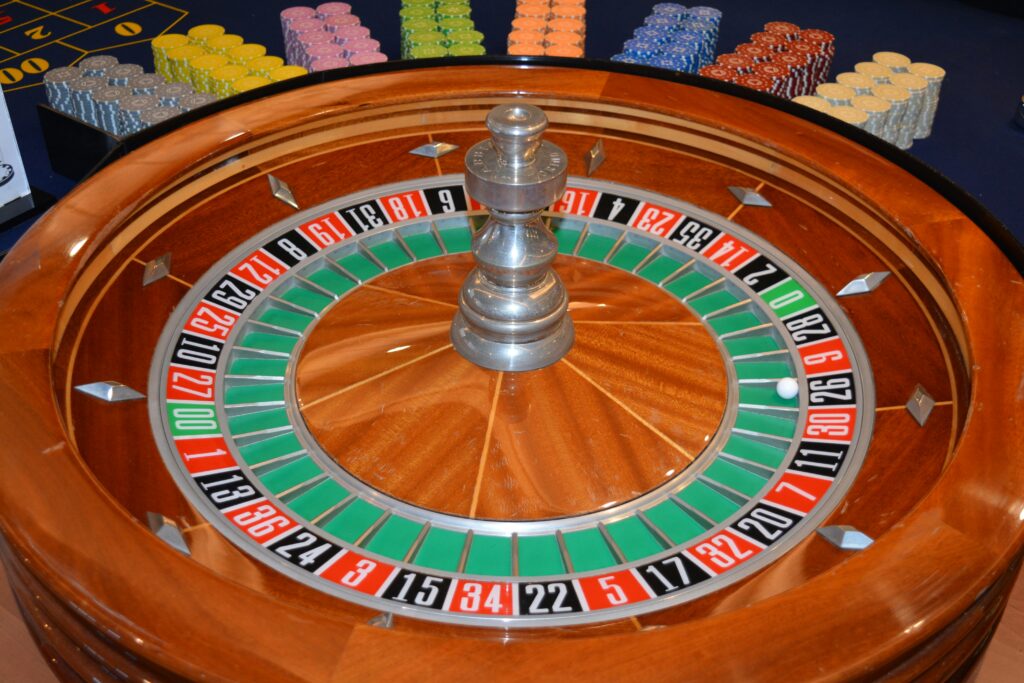Why Responsible Gambling Matters
Gambling, in its casual form, can be just another form of entertainment—like grabbing drinks with friends or buying tickets to a concert. But for some, the fun flips into something very different. Problem gambling doesn’t always look explosive from the outside. It can start with missing a bill to chase a small loss, lying to someone close, or fixating on the next bet as the only way out. Over time, the damage spreads: financial strain, mental health spirals, strained relationships.
The line between occasional play and harmful behavior is thinner than most think. It usually starts when gambling shifts from choice to compulsion. If the high of the win starts justifying the risk—if someone can’t walk away even when the losses pile up—that’s a red flag. Awareness is the first defense. Responsible gambling isn’t about never placing a bet; it’s about knowing why you’re playing and when to step back.
Understanding the game is part of playing it—but knowing when the game starts playing you? That’s where responsibility kicks in.
Recognizing the Signs Early
One of the hardest parts about problem gambling is spotting it in real time. It rarely starts with a breakdown. It sneaks up—increased time at the slot machines, bets getting bigger, excuses piling up. Emotionally, the red flags start to show when frustration, guilt, or anxiety replace enjoyment. If you’re chasing losses more than chasing fun, that’s a sign. If you’re hiding how much you’re gambling or skipping out on other parts of your life to stay online or at the tables, that’s another.
Behaviorally, things tend to spiral fast. Missed bills. Ignoring texts. Irritability when not playing. It might feel small in the moment, but over time, these shifts stack up.
This is where self-awareness becomes essential. Think of it as an internal checkpoint. Ask yourself: Is this still entertainment—or is this an escape? Are you in control of the habit, or is the habit in control of you? Knowing the difference can stop things from slipping too far.
Recognizing the signs isn’t about shame. It’s about catching the problem early—while the fix is still within reach.
Immediate Steps to Take
Silence gives problem gambling room to grow. It builds shame, and shame pushes people further into isolation—the kind of space where harmful behaviors thrive. The first move? Talk to someone. Anyone. A friend, a family member, a counselor, even an anonymous helpline. Naming the issue out loud is a powerful shift. It breaks the spiral and reminds you you’re not alone. No one gets out of this by staying quiet.
Then there are tools built exactly for these moments. Self-exclusion programs let individuals voluntarily block themselves from gambling sites or venues. Some are as simple as filling out a form with a casino operator, others integrate across multiple sites. Time-out features offer shorter breaks—think 24 hours, 7 days, or 30 days—to step back, catch your breath, and recalibrate. These tools aren’t magic, but they buy time. And in the early stages of recovery, time matters.
(Read more about how to set smart boundaries in Setting Personal Limits for Safe Casino Gaming.)
Support Networks That Work
No one kicks a gambling problem alone. Support systems—formal and informal—can mean the difference between slipping back or moving forward.
Start with national helplines. These aren’t just answering machines with hold music. They’re staffed by trained counselors who know what relapse sounds like, even if you don’t use the word. In most countries, these hotlines are 24/7, free, and anonymous. Call when things go sideways. Or better, before they do.
Then there are online forums—Reddit threads, dedicated platforms, peer support apps. These spaces offer something powerful: anonymity. Strangers who’ve seen rock bottom are often the best guides to climbing out. You can vent at 3 a.m. and someone will answer, probably within minutes.
And finally, the people closest to you. Family and friends want to help, but they need clarity. That means setting expectations, not just apologies. Tell them what you’re doing to stay clean. Agree on what kind of support you need—and what you don’t. Boundaries help everyone breathe. They also build trust, which takes time but matters more than promises.
Support isn’t about being rescued. It’s about knowing where to reach when you start to slip. It’s out there—and it works.
Digital Tools That Help
Technology doesn’t just tempt—it can also protect. A growing range of digital tools is helping people rein in gambling habits before they spiral. Start with gambling blocking apps and browser plugins. These are the digital equivalent of locking the fridge when you’re trying to diet. Apps like Gamban or Bet Blocker make it impossible to access gambling sites altogether, while browser extensions can filter out ads and redirect risky content before it shows up.
Next up: budget trackers and time alerts. These aren’t built to shame you—they’re here to keep things real. Tools like Mint or YNAB show exactly where your money goes, while apps like StayFree track screen time to keep impulse surfing in check. Some even let you set hard alerts or lockouts when you cross a line you’ve set for yourself.
Then there are mobile apps tracking behavior patterns, flagging signs of repetition or obsession that often go unnoticed. These tools often use passive monitoring—looking at when and how you use gambling apps, how long you’re on them, and how often you return. It’s less about judgment, more about data, and seeing the truth laid out can be the wake-up call some need.
No single app will do the heavy lifting alone. But used together, these tools can build a buffer—a little friction between a thought and an action. And sometimes, that’s all it takes.
Professional Help Options
Not every problem can be solved by solo willpower or a browser plugin. When gambling gets serious, professional help steps in—and works.
Cognitive Behavioral Therapy (CBT) is a front-line approach. In simple terms, it helps people untangle the faulty thinking patterns that feed compulsive behavior. It’s not about talking endlessly about your childhood. It’s about figuring out how your thoughts trigger urges—and how to break that pattern. Many people see marked improvement in just a few structured sessions.
Then there’s the question of who to talk to. A licensed addiction counselor isn’t just a general therapist with a new workbook. These specialists understand the unique psychology of addiction, the mechanics of relapse, and the value of routine in recovery. They’re equipped to deal with the messy, repetitive nature of change—especially when it comes to gambling, which has its own brand of highs and lows.
Finally, there are clinics and inpatient programs. These aren’t for everyone, but they exist for a reason. If gambling has derailed your work, relationships, or daily function, a controlled environment might hit the reset button. Inpatient programs offer 24/7 support, structure, and—crucially—distance from triggers. Sometimes, stepping out of your normal environment is the first real step forward.
Long-Term Strategies for Recovery
Long-term recovery from problem gambling isn’t just about abstaining—it’s about rebuilding your life with purpose and stability. The goal is not only to manage urges, but to create a sustainable new normal that supports emotional, mental, and financial health.
Build Habits That Replace the Urge
Recovery requires more than willpower. Developing positive daily routines helps redirect energy away from gambling and toward meaningful activities. These don’t need to be major changes, but they do need to be consistent.
Some effective habit replacements include:
- Physical activity such as walking, cycling, or sports
- Creative outlets like writing, music, or art
- Volunteering to connect with others and add purpose
- Reading or podcasts that inspire personal growth
- Learning new skills, which cultivate confidence and discipline
Celebrate Progress—Not Perfection
Recovery is a journey, and it’s important to acknowledge small wins.
- Missing a gambling urge is a success
- Seeking support is a meaningful step
- A week without gambling is progress, not ‘just a week’
Instead of expecting perfection, focus on consistency and resilience. Relapse does not mean failure—it’s an opportunity to learn more about your triggers and refine your support system.
Embrace Structured Accountability
Consistency thrives in structured environments. Accountability adds external motivation and measurable goals, which can be crucial—especially in the early stages of recovery.
Ways to build structure and accountability include:
- Journaling daily thoughts, emotions, and urges
- Joining weekly support groups or check-ins
- Setting clear goals with a therapist or counselor
- Using digital tools to track time and spending
Recovery becomes more achievable when you’re not navigating it alone. The right habits, support networks, and mindset can help you maintain momentum and rediscover a life free from gambling.
Final Thought
Recovery from problem gambling isn’t a straight line—it’s a personal path, and everyone’s walk looks different. Some people find strength in structure, others in conversation. What matters is that recovery is possible. That’s not a hopeful slogan; it’s a truth backed by thousands who’ve done the work and rebuilt their lives.
You don’t have to figure it out alone. Knowing your limits is the first step. Tools like self-exclusion programs or time-tracking apps aren’t crutches—they’re safeguards. Use them. Rely on them when your willpower dips. And lean on the community around you, whether that means peer support groups, trusted friends, family, or professionals who understand the challenge.
There’s no prize for doing this by yourself. Recovery works best when it’s fully resourced, tightly supported, and approached with honesty. Stay consistent, stay open, and above all, keep showing up. That’s where change starts.



